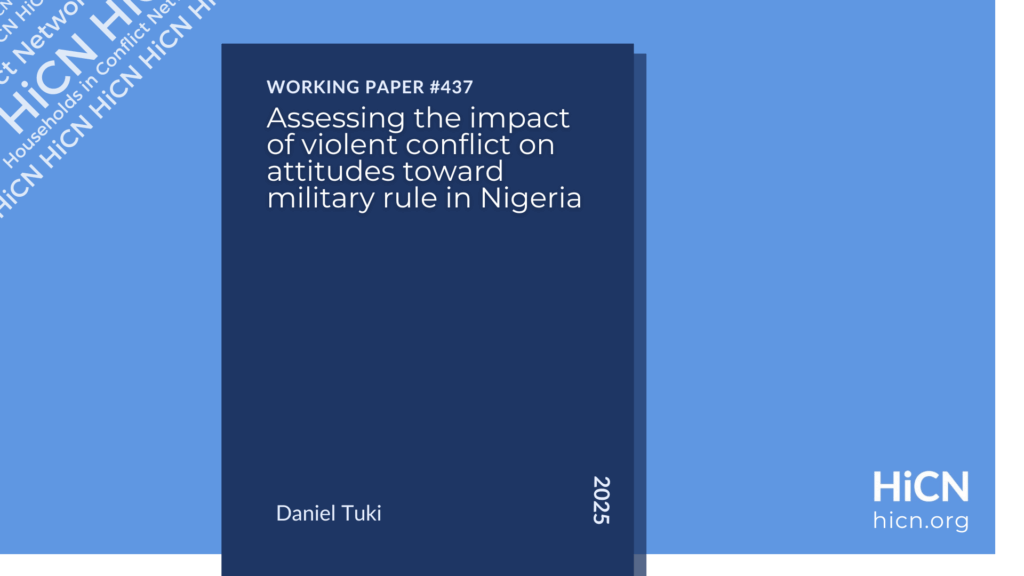
Violent conflict is often assumed to undermine democratic legitimacy and increase public support for authoritarian alternatives. Yet empirical evidence remains limited, particularly in the context of developing democracies. This study examines how exposure to violent conflict shapes regime preferences in Nigeria, Africa’s largest democracy and a country persistently affected by insurgency, intercommunal violence, and state fragility. Using data from Round 9 of the Afrobarometer survey and an instrumental variable strategy that leverages proximity to international borders as a source of exogenous variation in conflict exposure, I identify the causal effect of violence on public attitudes toward military rule. Contrary to conventional expectations, the results show that individuals exposed to higher levels of violence are significantly less likely to support a military takeover. These findings challenge prevailing assumptions about insecurity and authoritarian appeal. The study contributes to broader debates on regime legitimacy and authoritarian attitudes in fragile states.